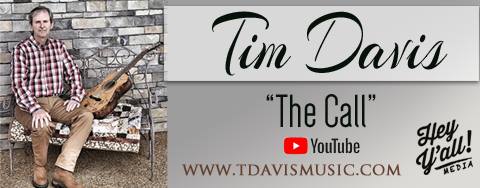
When Storms Come
(Mark 4:35-41; 6:45-53)
I want to share a chapter from a book I coauthored with you this week. You’ve been on my mind . . . It’s been on my mind. Maybe you need to be reminded. I know I do!
It’s a little longer than usual. But, read it to the end and be encouraged.
When Storms Come (from Masterpiece)
​There’s something wonderful about a good storm; the mighty rolls of thunder, majestic flashes of lightening and the metered pitter patter of raindrops sometimes gentle, other times fierce. It’s an incredible display matched by few others.
I’ve always loved a good storm. I can remember as a boy sitting on the porch in southwestern Ohio with my dad simply listening, observing, feeling the storm as it came and went. I can even remember one time when half of our city block was being rained upon while the other half was dry and sunny. There’s no other way to say it . . . Simply amazing!
When I moved to northeast Illinois for college I experienced storms in a whole new way. The Ohio Valley is filed with rolling hills that eventually grow into the Appalachian Mountains. Northeast Illinois is flat; you can see for miles. I remember times when the wind would pick up and you could literally watch the storm brew and advance across the horizon.
I can’t help it, I just love a good storm.
​But not all storms are good.
We’ve all seen reports of the devastation left behind the path of a tornado, hurricane or tsunami. Homes demolished. Cities wiped out. Landscapes forever changed. Lives stolen. Certainly, not all storms are good.
Just as we have seasons in our lives, we will also experience storms. Henry Wadsworth Longfellow stated this reality when he penned the words, “Into each life some rain must fallâ€. There’s simply no way around it. Storms are a part of life. Some, we’ll see brewing on the horizon. Others will blow in unaware. In a moment we find ourselves in a situation that we seem to be clinging for our lives. We wonder if our homes will withstand the gust, how or if we’ll make it through and dread to see how the landscape has changed when the sun begins to shatter the darkness.
What do we do in those times?
How should we respond?
​Tale courage. It’s still all about you.
Get Ready
In Mark 4:35-41 and Mark 6:45-53 we learn some powerful lessons on what to do when storms come. There are two recorded physical storms in the disciples walk with Jesus. Undoubtedly, there were more than just two storms in the three years they were together, but these two must be significant because we have their account in Scripture. Both happened during the second year of their walk with Jesus and both occurred while they were in a boat on the sea.
​Water was, is and always will be of great importance to any culture. In Scripture you see that almost every major biblical event occurs near some water source. Throughout the Old Testament large bodies of water are synonymous with death. It had also been referred to as “the abyss.â€
Why? Well, remember that in biblical times they didn’t have the technology that we now have. They weren’t able to go far below the surface of the water and see what was beneath. They had watched as people would venture out on the sea and never returned. They had heard the tales that had been spun from such events.
In chapter four we talked a little about the Sea of Galilee. You’ll remember that it’s the largest body of fresh water in that region. It’s a place of activity: commerce, travel, gathering. This sea was notorious. Because of the geography (remember, from the air it would look like a basin of water surrounded by a mountain range) the mood of the sea could shift without warning. A stiff breeze could race down from the mountains and across the waters changing smooth sailing into a nightmare for any traveler. This is the sea where these storms occur.
Kingdom Business
​The Master Artist has been displaying the canvas. The Kingdom is growing. In fact, so many gathered to hear Him that today He had actually taught from a boat. The day had been full, the crowds had been demanding.
When evening came and the teaching time was over, we hear Jesus speak to the disciples in a tired voice:
“Let us cross over to the other side†(Mark 4:35 NKJV).
​The disciples had also put in the exciting but long hours of ministry. Longing for respite, they push out on the sea. As the boat sails from the shore, the crowds that had gathered begin to disperse. The farther the boat gets from land, the crowds appear smaller and smaller until eventually they’re out of the disciples sight.
Turn of Events
​Daylight gives way to night as they set their course. Jesus, tired from the demands of the day, makes His way to the back of the ship. He finds a cushion and lies down. The gentle breeze and rocking of the waves are perfect ingredients for much needed rest. He drifts into slumber.
The disciples scatter around the boat. They, too, were enjoying the solitude, the peace, the rhythm of the sea.
As the journey continues, the wind begins to strengthen. As the wind begins to challenge the ship, lightening fills the air. And, with a fierce crash of thunder, the sky opens and begins to discharge its fury. The gentle breeze is now ferocious, and relaxing waves have become relentless— crashing into the boat.
Remember four of these twelve men are fishermen. Because they’re at home on the sea they know what they have to do. This is a battle they’ve fought before. They spring into action; grabbing oars, ropes, sails. They’ll not go down. Not tonight. Not like this.
We don’t know whether the other disciples felt at home on the sea, but we can assume they knew that water belonged outside of the boat—not inside. So, we see the fight in them, too. They grab buckets, pails and begin to scoop the water from the boat back to the sea.
The Battle Rages
The disciples are fighting. Jesus is asleep.
This is almost more than the disciples can take. Doesn’t He realize what’s going on here? How can He sleep through this storm? How is that even possible? Enough! Something has to be done.
One of the disciples makes his way to the back of the boat. He’s had all that he can take. He walks over to where the cushion is and begins to shake it. We hear the fear, the concern in his voice as he speaks:
“Teacher, do You not care that we are perishing?†(Mark 4:38 NKJV).
Listen to his voice. Hear his concern. We can translate this: “Jesus, we’re in a storm!. The boat’s filling up. We’re losing the battle. Jesus, we’re about to go down. Life is about to end! Do something!†He’s afraid for his life. Jesus understands.
We watch Jesus as He wipes the sleep from His eyes and stands to His feet. We see Him as He makes His way to the front of the boat. He faces the tempest, looks it in the eye, and speaks:
“Peace, be still!†(Mark 4:39 NKJV)
​Jesus speaks: “Be muzzled.â€
When the word came from His mouth, as the last syllable flipped from His tongue, the storm must obey. Remember, when Authority speaks it must be obeyed. And, the source of Authority has spoken.
Just as quickly as the mood of the sea shifted earlier, now it responds to the Master’s voice. The winds die down. Stars reappear. It’s smooth sailing for the rest of this journey. The disciples are left wet, shivering, and staring at each other saying:
“Who can this be, that even the wind and the sea obey Him!â€
(Mark 4:41 NKJV)
It’s not really about weather, you know.
Electric lightning that splits boats,
gale-force winds that hurl boats,
44-foot waves that sink boats.
It’s not about the weather at all.
It’s still about you.
Can you learn that even in the midst of your darkest night—
​your worst storm—
​​your unimaginable nightmare—
that the Master Artist is at work?
He may be silent. You may not hear His voice right away.
But He’s working behind the scenes in ways you can’t see.
The doctor’s office calls, and the test results are back.
The news isn’t good.
Your Savior knows all about it.
It seems you’ve had the children in church all their lives.
But now you’re hearing rumors about your high-school daughter.
STDs?
Your Savior isn’t shaken.
You promised “till death do us part.â€
But can you forgive yet another affair?
Your Savior has the answer.
You’re a good person. But suddenly you find yourself in the midst of a storm. And it’s not just any storm. Lightning has disintegrated your walls and now your home—your safe haven—is now anything but.
Gale-force winds have hurled you into such pain you don’t see how you’ll regain balance. You’re debilitated.
The monstrous waves have beaten you prostrate into the darkness. You’re wondering if you’ll even recognize the sun . . . should you ever see it again.
The answer is in the Master Artist. Though He may be silent, He is at work. He is moving, doing, restoring.
In the Greek language—the language in which the New Testament was originally written—there are two words for our “do.†One is prosso and it’s equated to an external activity. The disciples wanted Jesus to do something externally in the midst of the storm. “Can You grab a bucket, Jesus? Will You help us? We need Your physical help here!â€
Prosso IS physical activity. It’s engaging oneself in physical activity. It’s painting a tool shed.
The other word for “do†is poieo. Our word poetry is derived from this. It also refers to external activity—but it’s strength that flows from the inside. It comes naturally.
Jesus doesn’t paint tool sheds. But as the Master Artist, He spreads His brush freely, with urgency and extreme focus across the canvas of our lives. The beauty He creates in your life comes from within Him.
You are not simply on His “to DO†list; something to check off and accomplish externally. You are His “DOINGâ€â€”His healing, restoring, beautifying. And that kind of “do†comes from deep within Himself. Out of who He is, He makes your life better.
From naturally within Him, He muzzles the wind.
He commands peace for your soul.
He stops the storm.
He draws you near.
It feels as though the focus is on the storm, doesn’t it?
That’s where our attention naturally goes.
But look closer. Perhaps in the lower deck, with His head on a pillow, you’ll see a Master Artist who at any moment is about to poieo.
Can you trust Him? In the midst of a storm, can you trust Him?
His focus isn’t a storm. His focus is you.
A Miraculous Day
The entire day will be remembered forever. The Bible tells us five thousand people have been fed, but that’s only counting the men. If we counted everyone, it would easily amount to ten or fifteen thousand who were fed. Women and children were there, too.
And how were they fed? Not by the caterers. Jesus had done it with just a few fish and loaves. The crowds were ready to crown Jesus king.
The political climate seems delicate. John the Baptist has already been executed. The enemies of Jesus and the Kingdom were on the prowl; the Pharisees and Saducees were in wait ready to pounce.
Jesus was aware:
“Immediately He made His disciples get into the boat and go before Him
to the other side, to Bethsaida, while He sent the multitude awayâ€
(Mark 6:45 NKJV).
Another Storm
​We can hear His voice: “You go on to Bethsaida. I’ll catch up with you later.†The disciples are more than willing to do as Jesus has said. The day has been exciting but exhausting. So, we watch them as they climb into the boat, press from the shore of the sea and begin to sail toward Bethsaida.
As they do, Jesus makes His way to a mountain to pray. He would use this time to gather strength from His Father, direction for the storm that He’d soon face. As He prays, the disciples sail.
Back in the boat we watch as the sun has gone down. Once again, the disciples are in the midst of a storm. The wind picks up. Waves crash in. They spring into action; they fight the fight.
There’s a big difference in this storm and the one they just survived in Mark 4. Remember in the last storm Jesus was asleep in the back of the boat. Today, He’s nowhere to be found. In fact, they had left Him back on the shore. The One who had muzzled the storm was far from them. This would be it. They’d go down. This would be the end.
Can you imagine what they were feeling? Can you just sense that their confidence was nowhere to be found? What now? Notice the Scripture:
“Now when evening came, the boat was in the middle of the sea;
and He was alone on the land. Then He saw them straining at rowing,
for the wind was against them†(Mark 6:48 NKJV).
That’s probably the best description of how they were feeling: the wind was against them. Have you ever felt like that? One step forward, two steps back.
The oars are growing heavy. Their hands are rope-burned, backs are sore. For more than eight hours we get the sense that they only made it about three-and-a-half miles. They’re barely holding their ground. They’re about to go under. But, wait:
“Now about the fourth watch of the night
He came to them, walking on the sea. . . . “ (Mark 4:48 NKJV).
He came to them . . . walking on the sea. Think about this: A storm that the disciples could not navigate through, sail through—Jesus walks right through. He is not phased. The wind cannot halt His movement. He gets in the boat with them, the wind dies down, and they anchor in Gennesaret.
Two storms during the disciples time with Christ. Why does that matter to us? Because storms are a part of life. Sometimes we, too, feel like crying out to the Artist, “I’m drowning! Don’t You care? Are You even aware? Are You even here?â€
Because it’s inevitable that “Into each life some rain must fall,†to quote Wadsworth again, we need to be prepared. We need to know how to respond to the storms. We want to learn the lessons that the disciples learned those nights. Here are five.
Lessons Learned
#1: Obedience doesn’t equal ease. In each situation the disciples were simply doing what Jesus had told them to do. They could have easily shouted, “Hey, Jesus! We’re being obedient. So why are we in a storm? I mean, we’re doing what You told us to do!â€
​Obedience doesn’t equal ease. Read any book on persecuted Christians. Their obedience never equaled an easy life. (We recommend Heavenly Man by Brother Yun; Captive in Iran by Maryam Rostampour and Tortured for Christ by Richard Wurmbrand.)
From Billy​
I was born in 1972, so that means that I’m a product of the 80s. Those were my formative years. In the early part of that decade, my dad had an 80s van—sloped nose front, custom paint stripes down the side, tear drop tinted windows, slide the door open and shag carpet was everywhere. He thought he was cool! So did my friends and I.
We loved it when he gave us a ride to and from school in the cool van. We’d stop at Burger Chef and get milkshakes. The only problem? Well, music-wise dad was stuck in the 70s. He had an eight-track player in the van. (An eight-track player was like a CD player only totally different. I think cavemen invented it. It was used before cassette tape players were installed in cars. And I think those were invented by the early Romans.)
There was one song in particular that I remember. The intro was vibrant as the artist began to sing, “I beg your pardon, I never promised you a rose garden!â€
​He never said it would be easy, but He said that He’d be there with us through it all. You know what that means? It’s going to be good. Like the three Hebrew boys from the Old Testament who were thrown into the fiery furnace: “God will either save us from the flames, or He’ll take us to heaven. Either way, He has our back.†It will end good.
​#2: Don’t quit. The disciples learned this lesson right in the middle of the storm. Have you noticed that the temptation to quit is always strong? When the storm is raging and the night is so dark that it’s hard to sense His presence, it would be easier to curl up in the fetal position and just give up. We’ve all been there.
Jesus sees you in the storms. He’s not ignorant to your situation. Listen to the words of the psalmist in Psalm 121:1-4 NKJV:
​
I will lift up my eyes to the hills—
From whence comes my help?
My help comes from the Lord,
Who made heaven and earth.
He will not allow your foot to be moved;
He who keeps you will not slumber.
Behold, He who keeps Israel
Shall neither slumber nor sleep.
​Don’t quit. When you can’t see Him, He never takes His eyes off of you. He will not let you drown. He’ll always come through. Which leads us to the third lesson.
#3: In the midst of your greatest need, He’s there. Jesus went to the disciples. Moved by their circumstance, He did not leave them on their own. But when did He show up?
It wasn’t when the storm began brewing.
Not even when the boat was half-full of water.
Jesus arrived when they needed Him the most. When they saw no way out, He became their way out. They had reached the end of their striving, and Jesus was there.
He’s there. Wouldn’t it be great to simply marinate in this truth for a while? So often we’re tempted to do it on our own. So many times we think the answer lies in our efforts. And in the midst of our striving, we fail to realize He’s there.
In every circumstance, He’s there.
In the midst of every storm, He’s there.
In the midst of your greatest need.
You are His masterpiece. Every stroke of the brush is restoring who you were meant to be. When situations are out of control . . . when the world is spinning wildly, chaotically, remember that He’s there because He cares. You are a dream in the Artist’s heart. Each shade, every hue is for your good. He is the Master. He’s in control.
#4: You don’t always end up where you thought you’d be. In Mark 6, Jesus told the disciples to go to Bethsaida and that He’d catch up. However, after they struggled through the storm and Jesus got into the boat, they anchored in Gennesaret. (See Mark 6:53.)
Gennesaret. That’s not where they thought they were going. That wasn’t on their itinerary; it wasn’t a planned destination. Yet, that’s where they ended up.
You know through the life you’ve lived thus far, that things don’t always turn out the way you planned. Just talk to the young widow who lost her spouse to war and is left to raise a family on her own.
Speak with the father and mother whose son battled brain cancer at the age of 14. Then rejoiced at 15 because the battle seemingly had been won, cancer defeated. Yet it reared it’s ugly head more fiercely at 17 and claimed victory before his 18th birthday.
Sit down with the widower who lost his mate of 67 years and now lives life alone, losing part of who he is. They’d say, “It wasn’t supposed to happen this way.â€
“We were going to grow old together.â€
“You’re not supposed to outlive your child.â€
You don’t always end up where you thought you’d be . . . but when Jesus is with you, it becomes the right place.
​#5: You always land where you’re needed most. You may not understand why you are where you, but be sure of this: God will use you for His glory exactly where you stand.
The subheading in the New King James Bible to Mark 6:53-56 (when they anchor in Gennesaret) says this: Many Touch Him and Are Made Well
It seems odd to highlight a subheading, but it’s important that we catch it: MANY. Because they anchored there, many lives were changed. It’s not where they thought they were going. But, it’s exactly where they needed to be. People were changed, lives transformed, masterpieces restored by the Master Artist Himself.
Turbulence Happened
Two storms in the disciples’ three years with Jesus. In the first, Jesus was present. He was asleep in the stern. In the second, He had withdrawn to a mountain while the disciples struggled. The darkness of night prevented them from seeing Him, but He could see them.
The difference is great.
The withdrawal was necessary.
Why? Because Jesus knew the disciples would soon be in the storm of their lives. They needed to learn to trust their spiritual eyes more than their physical sight.
The Artist is always at work . . . even in the midst of a storm.
Can you trust Him?



